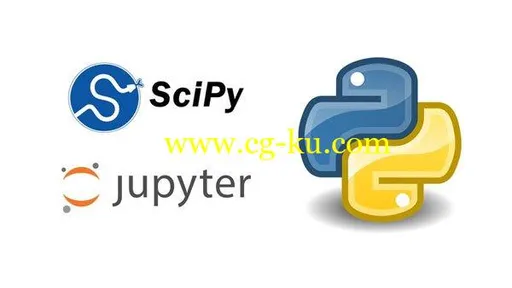MP4 | Video: h264, 1280×720 | Audio: AAC, 44.1 KHz, 2 ChGenre: eLearning | Language: English | Duration: 10 hours | Size: 4.52 GBLearn SciPy Library in detail with Python 3, Jupyter, NumPy, and MatplotlibWhat you’ll learnUnderstand and explain the Scientific EcosystemWork with Ndarrays in NumPyWork with MatricesMathematical and Statistical FunctionsFFTsSciPy for Image ProcessingSignal ProcessingBasic Visualizations using MatplotlibRequirementsWindows PC/ Raspberry Pi with Internet ConnectionBasic Programming and Python Programming BasicsZeal and enthusiasm to learn new thingsa burning desire to take your career to the next levelDescriptionBecome a Master in SciPy and acquire employers’ one of the most requested skills of 21st Century! A great Scientific Python programmer earns more than $120000 per year.
This is the most comprehensive, yet straight-forward course for the SciPy Library on Udemy! Whether you have never used SciPy before, already know basics of Python, or want to learn the advanced features of SciPy with Python 3, this course is for you! In this course we will teach you SciPy with Python 3, Jupyter, NumPy, and Matplotlib.
With over 70 lectures and more than 10 hours of video this comprehensive course leaves no stone unturned in teaching you SciPy with Python 3!This course will teach you SciPy in a very practical manner, with every lecture comes a full SciPy programming video and a corresponding Jupyter notebook that has Python 3 code! Learn in whatever manner is the best for you!We will start by helping you get Python3, NumPy, matplotlib, Jupyter, and SciPy installed on your Windows computer and Raspberry Pi.
We cover a wide variety of topics, including:Basics of Scientific Python EcosystemBasics of SciPy, NumPy, and MatplotlibInstallation of Python 3 on WindowsSetting up Raspberry PiTour of Python 3 environment on Raspberry PiJupyter installation and basicsNdarraysArray Creation RoutinesBasic Visualization with MatplotlibNdarray ManipulationInstallation of SciPyConstants and Linear AlgebraIntegrationFFTsSignal ProcessingInterpolationImage ProcessingWho is the target audience?Data Science ProfessionalsMachine Learning ProfessionalsAI ProfessionalsComputer Vision ProfessionalsRaspberry Pi EnthusiastsScientistsEngineeringMathematiciansPhysicistsAnyone with zeal and enthusiasm to learn

